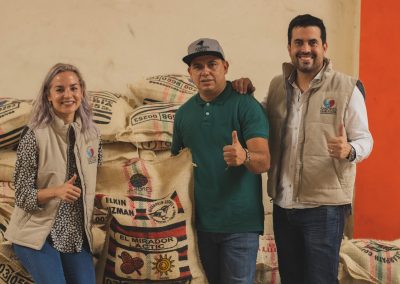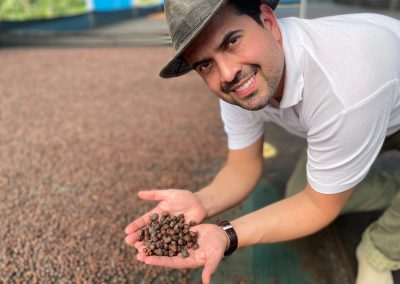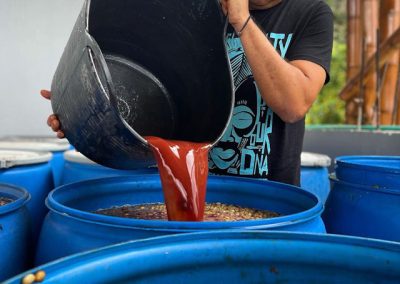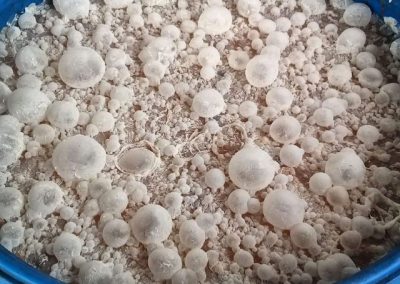Catiope
Melazas Natural
Catiope Melazas Natural – Data Sheet
– Coffee Name: Catiope Melazas Natural
– Grade: Excelso
GEOGRAPHIC LOCATION
– Country: Colombia
– Region: Palestina, Huila
– Farm: El Mirador
– Altitude: 1.550 – 1.750 m.a.s.l
GROWING CHARACTERISTICS
– Varieties: Catiope
– Drying: Sun-dried under Canopies
– Processing: Natural
– Fermentation: Co-Fermentation
ORGANOLEPTIC CHARACTERISTICS
– Notes: Guava, Caramel, Blackberries and Milk Cream
– SCA Score: 88
Farm Info
This lot of Catiope Melazas Natural is harvested and produced by El Mirador, located in the town of Palestina in Huila, Colombia, owned by Elkin Guzman. The farm includes a broad collection of varieties such as Catiope, Mokka, Gesha, Bourbon, Caturra, and Tabi, which is a variety developed and released in 2020 in Colombia by Cenicafe by crossing the varietals; Bourbon, Typica, and the Timor Hybrid.
In the world of differentiated coffees, Elkin and his team have been experimenting and evaluating variables that help improve the quality of the coffees they handle to offer an excellent drink for coffee consumers worldwide for more than 13 years.
The area of the farm is 31 hectares, with sandy-loam and clay-loam soils with good organic matter conditions that aid in the excellent nutrition of their coffee trees. El Mirador is managed under semi-shade systems to optimize temperature regulation and the effect of photosynthesis in coffee plantations.
Catiope Melazas Natural Process
This process was inspired by the fascinating results of lactic and anaerobic fermentation. While coffee traditionally undergoes anaerobic fermentation, Elkin’s exploration led them to discover aerobes thriving in the presence of oxygen (O2), introducing a new dimension of flavors.
Elkin started by initiating fermentation trials in water, leveraging a submersible pump to recirculate the water and infuse oxygen into the coffee medium. Adding a distinctive touch, he incorporated 20 kilos of molasses, a by-product from sugar cane transformation, serving as both an energy source for microorganisms and enhancing adherence to the husk. The carefully managed fermentation spans 60 to 96 hours, maintaining a temperature range of 14°C-18°C through continuous water movement to ensure a gradual pH drop, concluding between 3.5 to 4 at the process’s end.
Following the co-fermentation, the coffee undergoes a meticulous drying process lasting 25 to 30 days. Stirred every 3 hours, this ensures consistency and purity in the final beverage, resulting in a coffee experience unlike any other.




